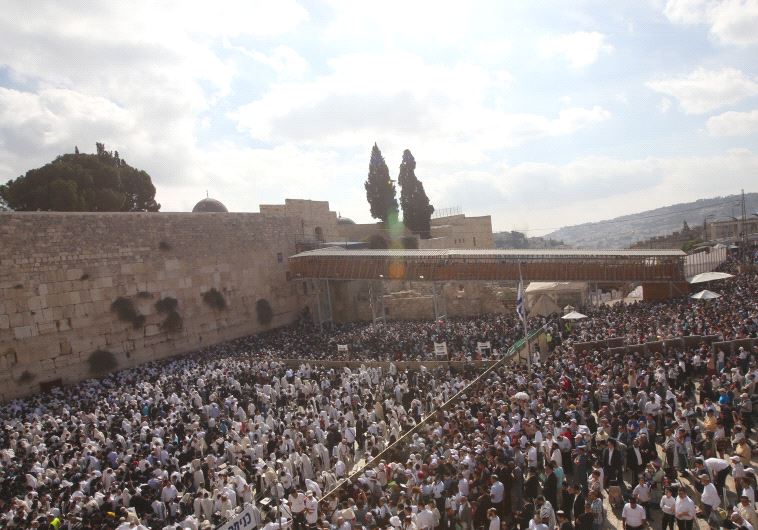The Human Spirit: Jerusalem seen through the board
‘I heard one of my granddaughters tell her mother that I’d declared I would buy the Western Wall, even if I had to go into debt...’
 Priestly Blessing at The Western Wall(photo credit: MARC ISRAEL SELLEM)
Priestly Blessing at The Western Wall(photo credit: MARC ISRAEL SELLEM)